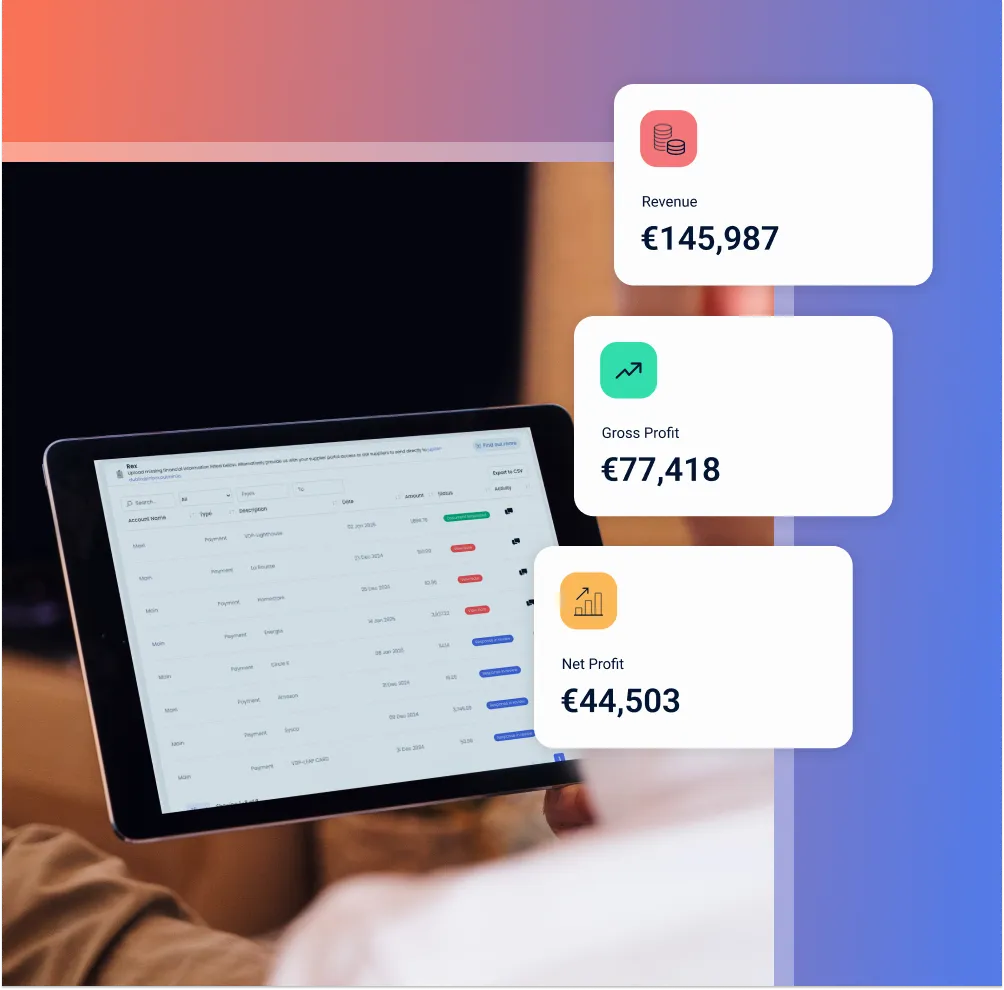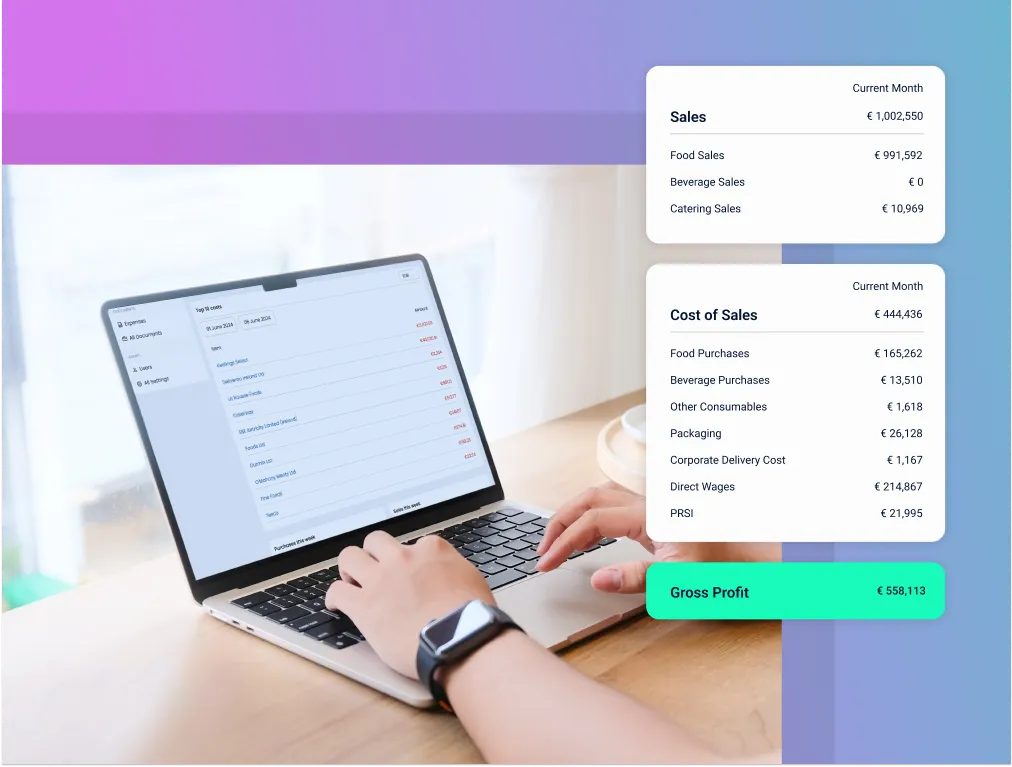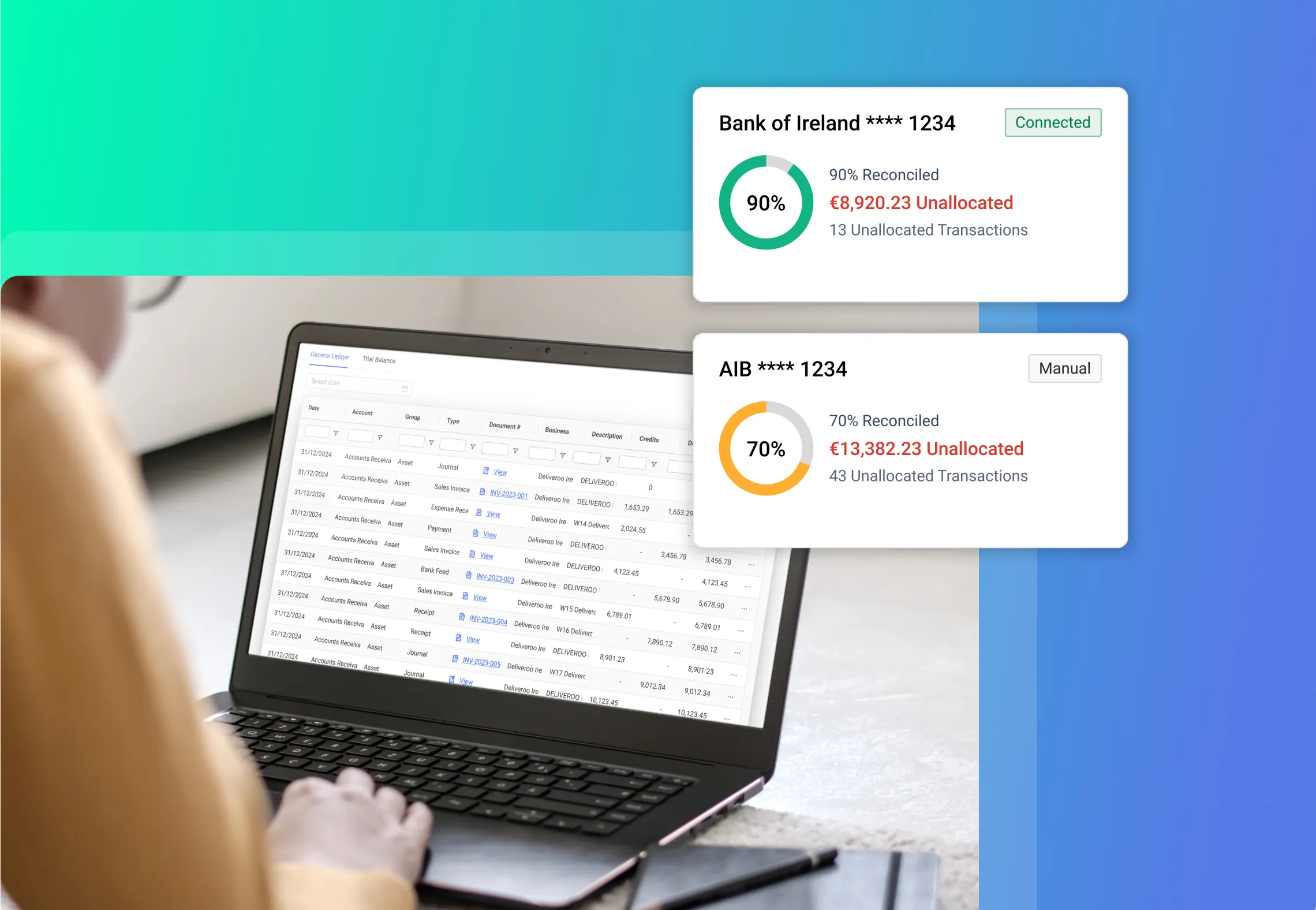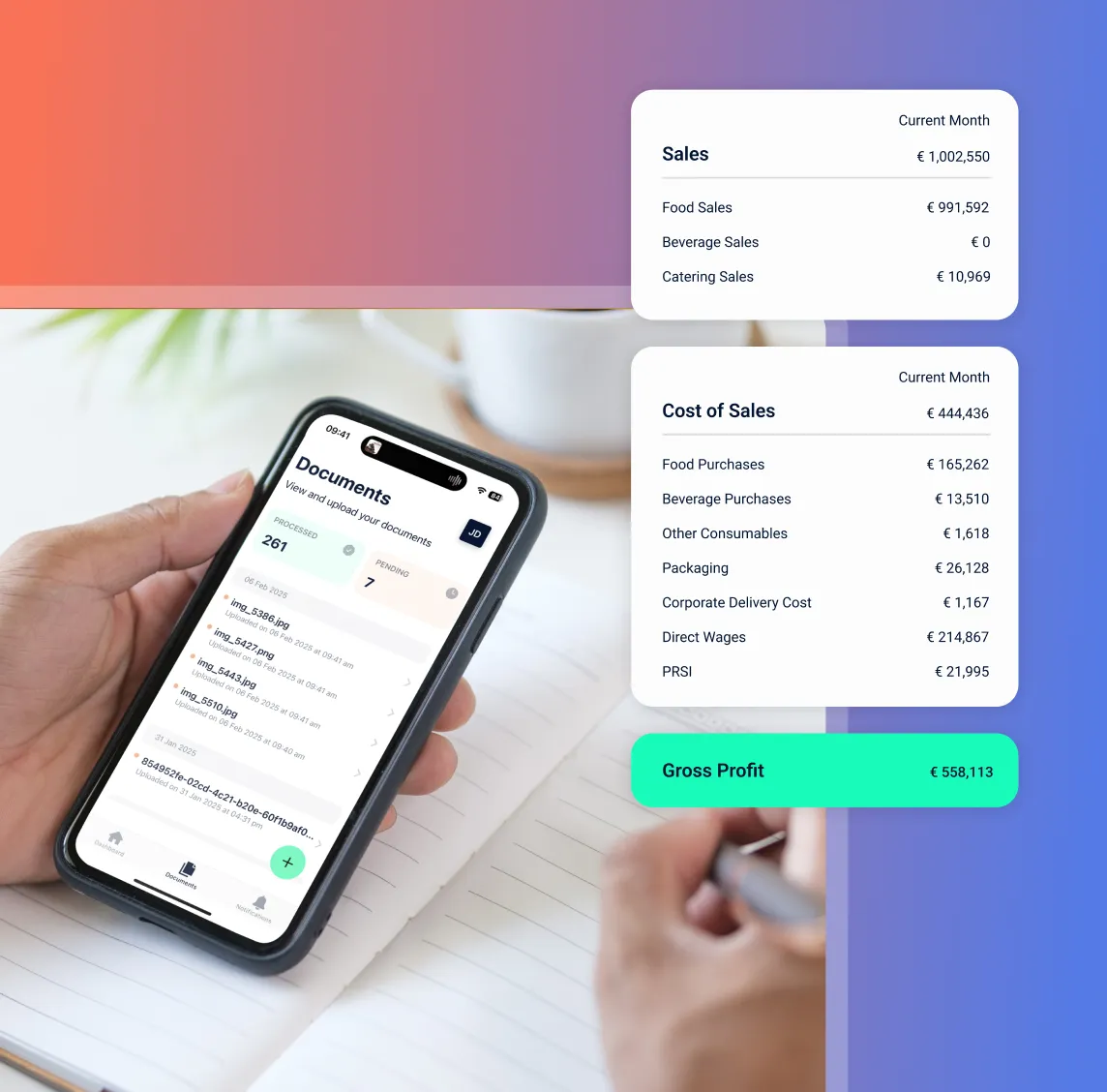Outmin vs QuickBox
Quick Comparison: Outmin vs QuickBooks at a Glance
Why 40-Year-Old Software Architecture Still Runs Modern Business
Features & Functionality: A Misleading Comparison?
Integrations: Different philosophies for Outmin vs QuickBooks
Final Thoughts
Want to stop managing your books manually?
FAQs

vs

Outmin vs QuickBooks: The complete QuickBooks alternative 2025
QuickBooks is DIY accounting software. You still log in, reconcile, and often hire someone to clean up the mess. Outmin is the alternative: an AI Bookkeeper that delivers accurate books without the manual grind. As you grow, QuickBooks means more hours and more hires. Outmin scales automatically.
Quick Comparison: Outmin vs QuickBooks at a Glance
Factor
QuickBooks
System Type
AI-native bookkeeping service
Cloud-based accounting software too
Primary Approach
Automated service that does the work for you
DIY tool requiring manual input and management
Manual Data Entry
80% eliminated through automation
Requires substantial manual work or add-ons like Dext
Target User
Business owners who want bookkeeping handled automatically
Users who want hands-on control over accounting processes
True Monthly Cost
From €399+, based on transaction volume (includes everything needed)
€18-70 + tools (eg. Dext) + bookkeeper = €400–3,000+/month
Scalability
Automatic scaling with AI processing
Requires additional staff or hours as you grow
Human Oversight
Expert accountants included
You manage or hire separately
Integration Management
No setup needed - direct data connections
Manual integration setup and maintenance
Core Strength
Eliminates manual bookkeeping through automation
Comprehensive accounting tools with reporting focus
Why 40-Year-Old Software Architecture Still Runs Modern Business
QuickBooks launched in 1983, before the internet, before smartphones, before AI was anything more than science fiction. While the interface has modernised, the fundamental approach hasn't: collect data, organise it, present it back to you to interpret and act upon.
This worked brilliantly when the alternative was paper ledgers. But today's businesses operate at digital speed with global complexity, while their bookkeeping still follows 1980s logic.
Today, even the most advanced QuickBooks setup still requires humans to upload transactions, chase suppliers, reconcile accounts, and interpret reports. It's powerful software, but it's still software that needs someone to operate it.
The AI-Native Alternative: What Happens When Software Operates Itself
QuickBooks launched in 1983, before the internet, before smartphones, before AI was anything more than science fiction. While the interface has modernised, the fundamental approach hasn't: collect data, organise it, present it back to you to interpret and act upon.
This worked brilliantly when the alternative was paper ledgers. But today's businesses operate at digital speed with global complexity, while their bookkeeping still follows 1980s logic.
Today, even the most advanced QuickBooks setup still requires humans to upload transactions, chase suppliers, reconcile accounts, and interpret reports. It's powerful software, but it's still software that needs someone to operate it.
Outmin, founded in 2020 in Dublin, was built on a different premise entirely. Instead of giving you better tools to manage your bookkeeping, what if the bookkeeping managed itself?
How Traditional Software Works: Your business generates financial data → You input it into QuickBooks → You categorise and reconcile → You generate reports → You interpret results
How AI-Native Systems Work: Your business generates financial data → AI captures it automatically → AI processes and reconciles continuously → Expert accountants verify accuracy → You receive completed financial insights
The practical difference
Where QuickBooks connects to your bank and shows you transactions to review, Outmin's AI reads your supplier invoices directly from their systems before you even see them. Where QuickBooks helps you categorise expenses, Outmin learns your business patterns and handles categorisation automatically. Where QuickBooks generates reports when you request them, Outmin provides real-time financial dashboards that update continuously.

Work done—without doing the work
Outmin replaces accounting tools and toil with AI + expert accountants, delivering daily-ready books.
Book a Demo
Features & Functionality: A Misleading Comparison?
On the surface, comparing features between QuickBooks and Outmin might seem useful. But in reality, it’s almost misleading.
That’s because QuickBooks is built around a DIY software model. It gives you tools (lots of them) but expects you (or your team) to do the work: input data, chase suppliers, reconcile transactions, run reports, fix errors.
Outmin doesn’t offer tools. It does the job. It’s a fully managed system built to replace manual bookkeeping, not assist it. So instead of asking “which has more features,” the better question is: Do you want to do the work yourself, or have it done for you?
QuickBooks: Comprehensive accounting tools
Outmin: Automated bookkeeping service
What you get:
What you get:
Advanced invoicing with custom templates and payment tracking
Multi-currency support with real-time exchange rates
Inventory management with cost tracking and reorder points
Project profitability analysis and time tracking integration
65+ standard reports plus custom report builder
750+ third-party integrations and API access
Payroll processing and tax preparation assistance
Advanced budgeting and forecasting tools
Smart Data Retrieval: AI connects directly to banks, POS systems, and supplier portals
Intelligent Document Processing: Automated invoice reading and expense categorisation
Done-for-you Reconciliation: Continuous account matching with anomaly detection
Expert Human Oversight: Professional accountants verify all automated work
Mobile App: Upload receipts instantly, monitor cash flow anywhere
Live Financial Dashboard: Real-time P&L, cash flow, and business health metrics
What you still need to do:
What you still need to do:
Upload and categorise transactions manually
Reconcile bank feeds and resolve discrepancies
Chase suppliers for missing invoices and documents
Set up and maintain all integrations yourself
Generate and interpret reports for business insights
Manage compliance and tax preparation workflows
Upload one-off docs via mobile or desktop (if needed)
Everything else happens automatically
Manage growth, not software.
Outmin eliminates uploads, reconciliation, and supplier chasing. Everything just… happens.
Book My Free Demo
The Real Cost Analysis: SaaS vs AI-Native
This is where many businesses get confused when comparing Outmin vs QuickBooks. You can't compare a software subscription to a complete service - it's like comparing a gym membership to a personal trainer.
QuickBooks: The iceberg pricing model
Outmin: Transparent service pricing
Visible Costs (What You See):
Simple Start: €18/month
Essentials: €26/month
Plus: €37/month
Advanced: €70/month
Hidden Costs (What You Don't):
Document Management: Dext or similar (€30-40/month)
Bookkeeping Labour: 10-15 hours monthly at €25-50/hour (€250-750/month)
Accountant Consultation: Quarterly reviews and error fixing (€200-500/quarter)
Your Time: 5-10 hours monthly in management overhead (€200-500/month valued time)
Error Costs: Mistakes in categorisation, missed deductions, compliance issues (€500-2000/year)
Realistic Monthly Total: €500-3,000+
Outmin’s pricing is calculated based on transaction volume. Simple as that. You pay for what you use. The price starts at €399.
There are no tiered plans. Every user gets a complete bookkeeping service:
AI Bookkeeper: Automated invoice processing, categorisation, reconciliation, and VAT prep
Accounting Manager: A dedicated expert who monitors accuracy and resolves exceptions
Outmin Platform: A single dashboard showing daily financials, with all records in one place
Typical Savings: 40-70% vs QuickBooks total cost
vs
Your time costs more than €18/month
Slash admin hours and tool costs by switching to Outmin’s all-in AI bookkeeping solution.
See My Savings
Ease of Use & User Experience
QuickBooks: User-friendly in theory, demanding in practice
QuickBooks Online (QBO) is marketed as intuitive, but users frequently report that real-world usage is more complex than expected. Across forums like Reddit and user review platforms, common complaints include navigation friction, slow load times, and disrupted workflows.
On Reddit, users describe basic actions, like viewing a customer record, as requiring workarounds such as “refreshing data in settings” to make updated information appear.
Many long-time users transitioning from QuickBooks Desktop say the Online version feels like a downgrade, with more steps required for tasks that were previously simple. Several posts mention frustration with "buried" features and unnecessary clicks for daily actions.
On Capterra and Trustpilot, reviews often praise QuickBooks for its feature breadth, but the same reviews point out steep learning curves, poor onboarding, and cluttered menus that can overwhelm non-accountants.

Performance issues also emerge regularly. Users report browser freezing, slow response during peak times, and issues with syncing bank data or accessing reports. While QuickBooks Online does offer mobile apps and cloud accessibility, the trade-off is a heavier reliance on internet stability and more frequent UI changes.
In practice, QuickBooks Online requires significant hands-on management. Users must stay on top of categorisation, reconciliation, document uploads, and ongoing troubleshooting, adding to the daily admin load.

Outmin: Designed for minimal user interaction
Outmin takes the opposite approach. Rather than giving users tools to do bookkeeping themselves, it removes that responsibility entirely.
Users don’t need to match transactions, enter invoice details, or manage bank feeds. The platform retrieves financial data directly from banks, POS systems, supplier portals, and payroll providers.
Most users only interact with Outmin to upload occasional one-off documents via mobile or desktop. Everything else flows in and is processed automatically.
The dashboard is designed for visibility, not action. Business owners can log in to view real-time summaries (money in, money out, suppliers, VAT, etc.), with minimal clicks and no manual setup. Exceptions and flagged items are surfaced clearly, without requiring users to dig through menus or fix issues themselves.
This approach means users don’t waste time learning a new software system or navigating complex features: they just get clean, accurate books, ready to review.

Integrations: Different philosophies for Outmin vs QuickBooks
Integrations sound simple on paper, but they often add complexity, not reduce it.
QuickBooks
QuickBooks relies heavily on third-party integrations to extend its functionality (over 800 apps). Features like expense management, invoice scanning, and supplier tracking often require additional tools such as Dext, AutoEntry, or third-party banks and payment processors. While this flexibility can be useful, it means users (or their bookkeeper) are responsible for maintaining the entire setup: linking accounts, troubleshooting sync errors, and ensuring that data flows correctly between systems.
This multi-tool approach can also lead to inconsistent data or broken connections, especially if external apps update or change permissions. Businesses often find themselves manually fixing duplicate transactions, lost receipts, or failed reconciliations that arise from mismatched integrations.
Outmin, by contrast, doesn’t rely on an app ecosystem to deliver its features. Bank feeds, supplier data, invoice processing, and reconciliation are handled directly within the platform. There’s no need to manage third-party tools or ensure they’re syncing properly. Data is pulled automatically, processed intelligently, and checked by Outmin’s system without manual setup.
For teams tired of maintaining a complex web of accounting tools, this difference is significant. Outmin removes the integration burden entirely by replacing the entire stack.
vs
Customer Support
Support is one of those areas that only becomes visible when something breaks. And when it does, the experience matters.
QuickBooks: Support channels in place, but frustrations persist
QuickBooks offers a full suite of support options: live chat, phone lines, a large help centre, and community forums. But many users report that the actual experience falls short of expectations.
On review sites like Trustpilot, user sentiment is inconsistent. While the UK-specific domain for QuickBook s shows a 4.2-star rating, the main quickbooks.com page (unclaimed by Intuit) has a much lower 1.3-star average, mostly reflecting issues with support, billing, and technical resolution.
On ConsumerAffairs, QuickBooks has a 1.1-star rating, with frequent mentions of unhelpful support interactions and difficulty reaching someone who can resolve issues.
On Reddit and other user forums, small business owners often share frustrations about long wait times, chatbots that don’t escalate properly, and being passed between teams when problems span across banking, payroll, or account settings.
Even with all the right channels in place, support remains the most consistent pain point for many users, especially when something out of the ordinary occurs.
Outmin: Fewer issues, direct help
With Outmin, there’s no support hierarchy to navigate. Businesses and accounting firms interact with the same team that’s actually doing the work. No need to explain things multiple times or chase updates.
One consistent point of contact per account
Support channels via email or in-app messaging
Real-time visibility into missing documents, bank feed issues, or flagged transactions
No handoffs between departments or reliance on chatbots
Support is included by default, not gated behind pricing tiers
Because Outmin manages the entire process - from data collection to reconciliation - there are fewer points of failure, and less need to ask for help in the first place.
“I don't think there's ever been an email I sent [to Outmin] that I didn't get an email back within maybe two hours.”

– Fearghal Snowden
InDigital
When Outmin vs QuickBooks Makes Sense
QuickBooks if…
Outmin if...
You’re comfortable managing your own books, don’t mind learning a few systems, and have the time to stay on top of tasks yourself.
You want hands-on control over your bookkeeping
Your business has low transaction volume and few invoices
You (or someone on your team) has bookkeeping experience
You’re you're to maintain integrations, chase documents, and reconcile transactions manually
You’re already used to accounting software and don’t mind adapting to platform quirks
QuickBooks can work well for sole traders, freelancers, or small businesses with someone willing and able to manage it all.
You’d rather not think about bookkeeping at all, and want a system that handles it accurately and automatically.
You want your bookkeeping done for you, not just tracked by software
You value reliable, real-time visibility into finances without managing spreadsheets or tools
You don’t want to deal with bank feed issues, missing documents, or reconciling line by line
You’d rather your team spend time on actual operations, not data entry
You want clean VAT-ready records, verified daily, without chasing or rework
Outmin is built for busy businesses (in hospitality, manufacturing, retail, and other professional services) and firms that want clean books, less admin, and a clear picture of their financials without hiring more staff or managing another app.
vs
When you’re ready to stop doing bookkeeping, this is it.
Outmin delivers clean, accurate books daily—with no manual effort from you.
Book a Demo Today
Final Thoughts
QuickBooks is one of the most popular bookkeeping tools for small businesses. It has a wide user base, deep functionality, and can be a good fit for those who want control and have time to manage the process. But that control comes with a cost: your time, attention, and the need to keep everything stitched together.
Outmin takes a different route entirely. It’s not a tool you use - it’s a system that does the work. With built-in AI processing, real accountants overseeing quality, and no integrations or manual steps required, it replaces the traditional DIY software model with a fully managed approach.
If you’re looking for a platform that just keeps your books clean, updated, and VAT-ready without daily oversight, Outmin is likely the better fit.
Want to stop managing your books manually?
Outmin gives you clean records, daily updates, and peace of mind, with no tools to manage. Book a free demo today

Frequently Asked Questions
What is the difference between Outmin and QuickBooks?
Outmin is a fully managed bookkeeping platform, while QuickBooks is accounting software you operate yourself. With Outmin, there are no manual uploads, reconciliations, or integrations to manage. The work is done for you.
Is Outmin a good alternative to QuickBooks?
Yes, especially for businesses that want to save time, reduce manual work, and avoid managing multiple tools. Outmin handles bookkeeping from start to finish using AI and human review.
Is Outmin more expensive than QuickBooks?
Outmin's monthly service fee (starting at €399) is higher than QuickBooks' software subscription alone (€18-70/month). However, QuickBooks' advertised price doesn't include the additional costs most businesses need: document management tools like Dext (€30-40/month), bookkeeping labor (€300-1000+/month), and your time managing the system. When comparing total costs, most businesses save 40-70% with Outmin's all-inclusive service.
Can Outmin replace QuickBooks for small businesses?
Yes. Outmin is often used instead of QuickBooks by businesses that prefer not to do their own bookkeeping. It gives you daily financial updates, real-time reporting, and expert-managed accuracy without needing accounting software.
Can I still use my existing accountant with Outmin?
Absolutely. Many Outmin clients continue working with their existing accountants for tax planning, strategic advice, and year-end services. Outmin handles the daily bookkeeping and provides your accountant with clean, accurate data, making their job easier and often reducing their fees for routine bookkeeping tasks.
How long does it take to learn Outmin vs QuickBooks?
QuickBooks typically requires weeks or months to master, especially for users without accounting backgrounds. Outmin is designed to require virtually no learning - most users are monitoring their finances within days of setup. The AI handles complex accounting tasks automatically, so you don't need to learn bookkeeping software operation.
What if I need custom reports that QuickBooks offers?
Outmin provides all standard business reports (P&L, cash flow, balance sheet) automatically updated in real-time. While QuickBooks offers more customisation options, most businesses find Outmin's automated reporting covers their needs without the complexity of building custom reports. If you have unique reporting requirements, feel free to share during your demo.


